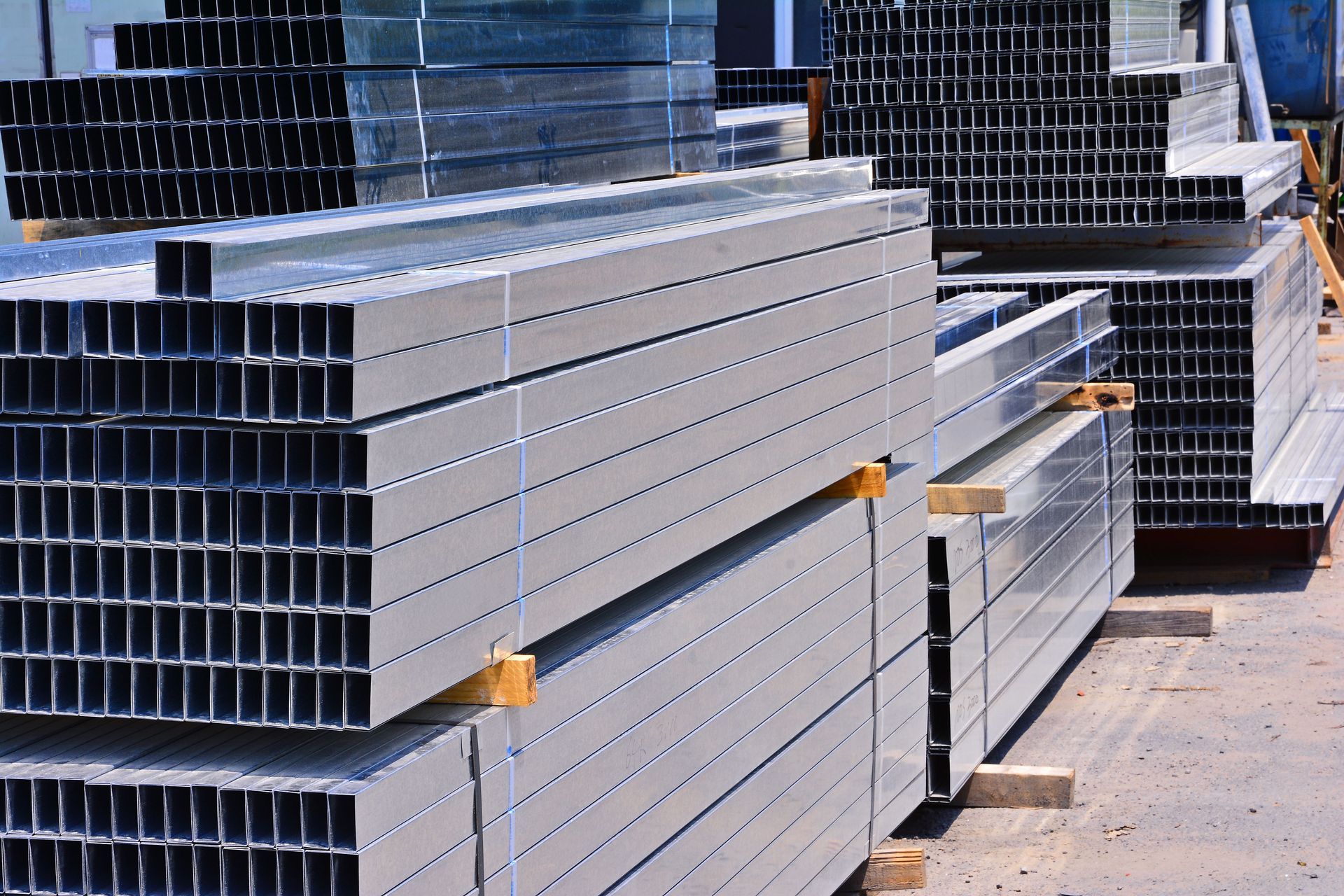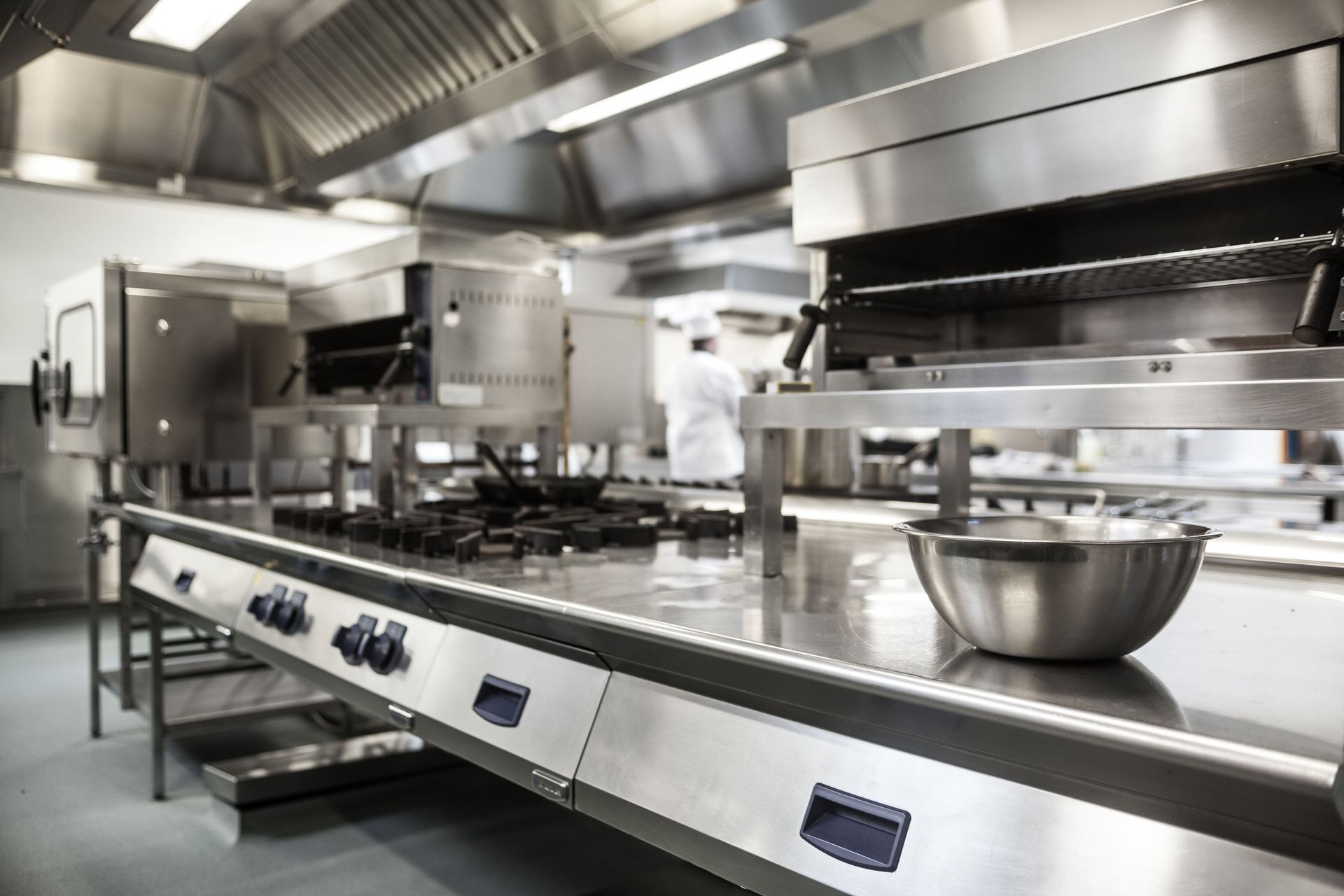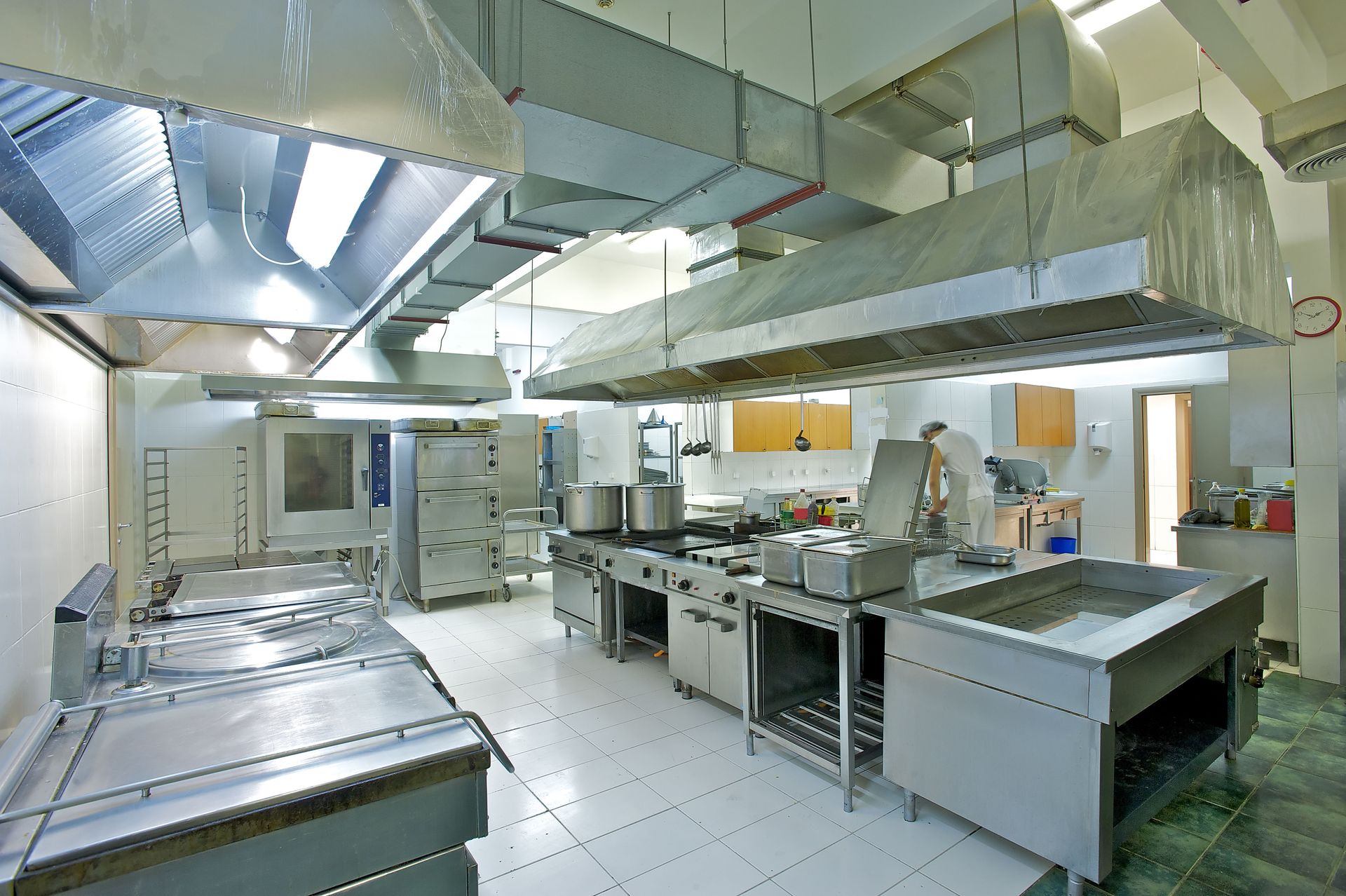Kitchen Hood Installations: Meeting Health and Fire Code Standards
Running a commercial kitchen requires more than great food and excellent service: it also demands strict adherence to health and fire codes. A critical part of compliance in any restaurant or food service operation is the proper installation and maintenance of a kitchen hood system. Kitchen hoods are designed to capture grease, smoke, heat, and airborne particles, creating a safer, cleaner environment for both employees and customers. Failure to meet standards for kitchen hood installations can lead to health violations, costly fines, and increased fire hazards.
Beyond compliance, a well-designed hood system contributes to efficiency, comfort, and long-term business success. Clean air, controlled temperatures, and reduced fire risk all play a role in making kitchens more functional and enjoyable for staff while providing guests with a healthier dining atmosphere. For restaurant owners, investing in code-compliant ventilation is a decision that safeguards both people and profits.
Why Kitchen Hoods Are Essential for Compliance
Commercial kitchens produce significant amounts of smoke, grease, and odors. Without a functioning hood system, these particles accumulate on surfaces, linger in the air, and increase fire risks. Health departments and fire marshals recognize the dangers associated with poorly ventilated kitchens, which is why codes and regulations around kitchen hood installations are so strict.
The right hood system not only removes contaminants but also helps regulate temperature and improve air quality. This creates a safer work environment and reduces the chances of health violations. In addition, efficient ventilation lowers stress on HVAC systems, which can save restaurants money on energy costs. By investing in a compliant system from the start, owners can avoid the expense of retrofits or penalties later. The right installation is both a safety measure and a smart financial strategy.
Another important consideration is staff retention and well-being. Kitchens without proper ventilation can quickly become uncomfortably hot, smoky, and unsafe, which may lead to higher turnover rates. Compliance allows owners to create healthier working conditions that make it easier to attract and retain skilled employees, a benefit that directly impacts long-term business stability.
Meet Fire Code Standards Through Proper Design
Fire codes are some of the most important regulations affecting commercial kitchens. Grease buildup in ducts, filters, and exhaust fans is a leading cause of restaurant fires. Fire marshals often cite improper or neglected kitchen hood installations as major contributors to fire-related accidents.
To comply with fire codes, hoods must be designed and installed with adequate exhaust rates, grease removal systems, and fire suppression mechanisms. Most commercial kitchen hoods are paired with an automatic fire suppression system that activates when flames or extreme heat are detected. These safeguards are not optional—they are required by law in many jurisdictions. According to Introspective Market Research, the North American kitchen hood market makes up 35.2% of the global market, underscoring the growing demand for compliant, high-quality ventilation systems in the region.
Restaurant owners must also schedule routine cleanings of ducts and filters, as codes mandate regular maintenance. Beyond compliance, this proactive approach ensures that kitchens operate smoothly, avoid unpleasant odors, and minimize downtime from equipment failure. Taking fire safety seriously protects both people and property while reinforcing a restaurant’s reputation for responsibility.
Health Code Standards and Air Quality Management
While fire prevention is critical, health code compliance is equally important in food service environments. A poorly ventilated kitchen can quickly become a breeding ground for bacteria, mold, and airborne contaminants. Kitchen hood installations that meet health codes are designed to improve air circulation, remove excess heat, and minimize airborne grease and odors.
For employees, this means a more comfortable and safer workspace. Reduced exposure to grease and smoke particles lowers the risk of respiratory issues and workplace-related health complaints. For customers, it means cleaner dining areas free from lingering odors or smoke that could compromise their experience. Beyond inspections, improved air quality can enhance staff productivity and customer satisfaction, making ventilation a key factor in overall restaurant performance.
Health inspectors pay close attention to ventilation systems during routine checks. If a hood is improperly installed or maintained, restaurants can face penalties, forced closures, or negative ratings. By proactively addressing these issues, owners not only avoid regulatory setbacks but also build trust with guests who care about cleanliness and safety.
The Role of Professional Installation and Maintenance
Compliance with health and fire codes begins with professional installation. Certified contractors understand local regulations, know how to size hoods for specific kitchen layouts, and ensure all components, from ductwork to fire suppression systems, are properly installed. Cutting corners or hiring unqualified technicians often leads to violations, equipment failure, and increased risks.
Professional installation also ensures kitchens receive the right type of hood. For example, Type I hoods are designed to handle grease-laden vapors, while Type II hoods are meant for heat and steam. Using the wrong type of system can result in failed inspections and significant safety concerns. Ongoing maintenance is just as important as installation. Routine inspections, cleanings, and part replacements are required to keep systems compliant.
Many local fire codes specify how often ducts and filters must be cleaned, depending on the type and frequency of cooking. Partnering with a qualified service provider ensures these requirements are consistently met. By investing in professional expertise, restaurant owners can be confident that their ventilation systems will continue to meet evolving code standards while extending their operational lifespan.
The Business Benefits of Code-Compliant Kitchen Hood Installations
Beyond legal compliance, there are tangible business advantages to ensuring kitchen hoods meet health and fire code standards. A compliant system reduces liability, lowers insurance premiums, and minimizes the risk of unexpected shutdowns due to code violations. Insurers often look favorably on businesses that demonstrate proactive safety measures, including properly maintained ventilation systems.
Additionally, compliant hoods extend the lifespan of kitchen equipment. By efficiently removing grease, heat, and moisture, they prevent buildup that can damage appliances and ductwork. This reduces long-term repair and replacement costs. Customer satisfaction also improves when restaurants maintain high standards of cleanliness and safety. Guests are far less likely to complain about smoke, odors, or discomfort, and positive experiences often translate into repeat business.
Compliance can even become a selling point in competitive markets. Customers trust establishments that prioritize safety and cleanliness, and employees are more likely to stay in workplaces where their health and well-being are valued. Investing in hood installations that meet health and fire codes is not just a regulatory requirement; it’s a strategy that strengthens a business from the inside out.
In commercial kitchens, compliance with health and fire codes cannot be overlooked. Proper kitchen hood installations are essential for capturing grease, smoke, and heat, creating a safe and comfortable environment for staff and guests. By aligning with code requirements, restaurant owners reduce fire risks, maintain better air quality, and avoid costly violations.
From professional installation to routine maintenance, every step plays a role in ensuring compliance. The benefits go beyond safety and legal protection—businesses also gain financial advantages and improved customer satisfaction. Whether opening a new restaurant or upgrading an existing kitchen, code-compliant hood installations are one of the smartest moves a business can make.
Ensure your restaurant meets health and fire code standards with reliable service from Walters Sheet Metal Corporation. Contact us today to learn how our professional kitchen hood installations can protect your business and keep your kitchen running safely.






Share On: